Lagos State’s booming real estate sector has long been plagued by sharp practices and scams, prompting the government to finally draw a hard line. In recent years, homebuyers and investors have fallen victim to fraudulent land deals, double allocations, and extortionate “Omo Onile” levies (demands by local landowners and sometimes, grabbers) that erode trust in the market. Public outcry has grown louder. A viral exposé video even accused a prominent property company of selling nonexistent land and issuing only receipts instead of proper title documents.
Financial regulators have also raised alarms; for example, the Securities and Exchange Commission (SEC) recently flagged an unregistered real estate investment scheme for exhibiting Ponzi-like tendencies. All these issues, rogue developers, unlicensed agents, opaque deals, tax evasion, and lack of industry structure—converged to create an urgent need for reform.
Given Lagos’s status as Nigeria’s real estate capital and economic hub, the stakes for cleaning up the sector could not be higher. The result is a bold new directive from the Lagos State Government: a ban on all unregistered real estate practices as part of a broader crackdown to restore sanity to the industry.
Under the new policy, anyone working as a real estate agent, broker, developer, or consultant in Lagos must now be registered with the Lagos State Real Estate Regulatory Authority (LASRERA). No exceptions. Practicing real estate without a valid LASRERA registration certificate is officially deemed illegal, and even clients who knowingly patronize unregistered practitioners can face penalties. LASRERA, as the state’s real estate regulator, is central to implementing this directive.
The agency will maintain a database of licensed practitioners, oversee a new registration and monitoring system, and vet transactions to protect the public. LASRERA’s broader authority includes investigating shady deals and coordinating with law enforcement to prosecute offenders.
Critically, the ban goes hand-in-hand with enforcement of industry standards. The government has reiterated that agents must not charge above the legal 10% agency fee nor demand more than one year of rent upfront, which are common practices that had been abused in the past.
These measures, according to LASRERA’s leadership, are part of Governor Babajide Sanwo-Olu’s commitment to restore order in the sector and protect the interests of home seekers, property owners, and honest professionals.
Justifying the directive from the standpoint of benefits and policy impact, this regulatory stance is a response to rampant malpractice that threatened the real estate sector’s integrity. In the past four years alone, LASRERA recovered about ₦478 million and 18 properties on behalf of defrauded buyers through its interventions.
The agency has handled over 1,700 reported fraud cases since 2020, ranging from land scams to contract breaches. Such statistics underscore how pervasive the problems had become. By mandating registration, Lagos is aligning with global best practices where realtors and developers are licensed and accountable.
The positive gains for the sector are clear. First, genuine investors and homebuyers will have greater confidence that whoever they’re dealing with is known to regulators and bound by codes of conduct. Over time, this trust boost could attract more investment into Lagos real estate.
Requiring all players to be on the grid also means better data and oversight, helping the government craft informed housing policies and capture more revenue. Notably, Lagos has paired regulatory reforms with heavy investment in housing: the state budget for Housing and Community Amenities jumped by 81.7% to ₦101.6 billion in 2025.
That said, the directive’s implementation needs to be balanced to avoid short-term shocks. In the immediate term, unregistered agents and small developers will either have to quickly formalize or exit the scene. However, the government appears aware of these risks, opting for public awareness and grace periods for registration rather than an overnight clampdown.
On the whole, the policy is designed such that the long-term benefits—a fair, stable, and efficient real estate environment—outweigh the transitional frictions.
Implications to Stakeholders
Developers must register with LASRERA and provide evidence of legitimacy, including land titles and building approvals. Those who comply will benefit from increased trust and investor interest.
Real Estate Agents/Realtors: Must obtain LASRERA licenses or risk being excluded from deals and legal exposure. Licensed agents will gain professional credibility and access to state-supported dispute resolution.
Brokerage Firms: Required to ensure all employees are licensed. This may encourage mergers or partnerships for smaller outfits while strengthening operational standards.
Regulators: LASRERA will expand its capacity and play a more active role in compliance monitoring and public awareness. The government expects better tax revenue and regulatory visibility.
Omo Onile Players: The new rules reduce opportunities for informal actors to interfere in land transactions. The ban, alongside anti-land-grabbing laws, strengthens formal structures over traditional claims.
Investors, Clients, and Home Finders: Stand to gain the most. They can now engage only with verified practitioners, reducing risk and increasing access to redress mechanisms in case of fraud.
The LASRERA directive signals a structural recalibration of Lagos’ real estate industry. If sustained and enforced fairly, it can restore credibility, encourage investment, and lay the groundwork for Lagos to lead Nigeria in property market transformation.
Author: Olowora Olawale
Brand and Communications Manager,
Gidi Real Estate Investment Limited
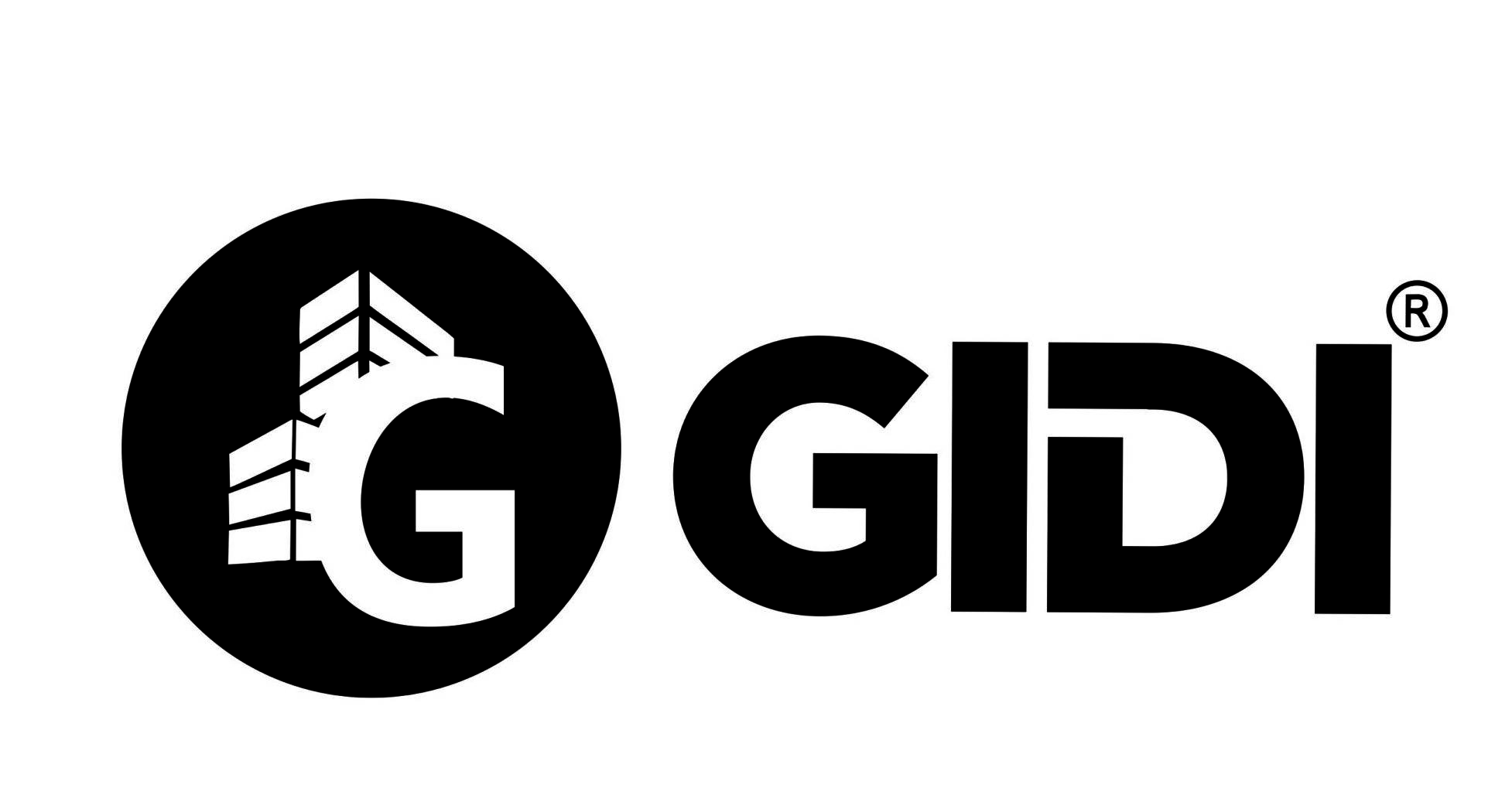


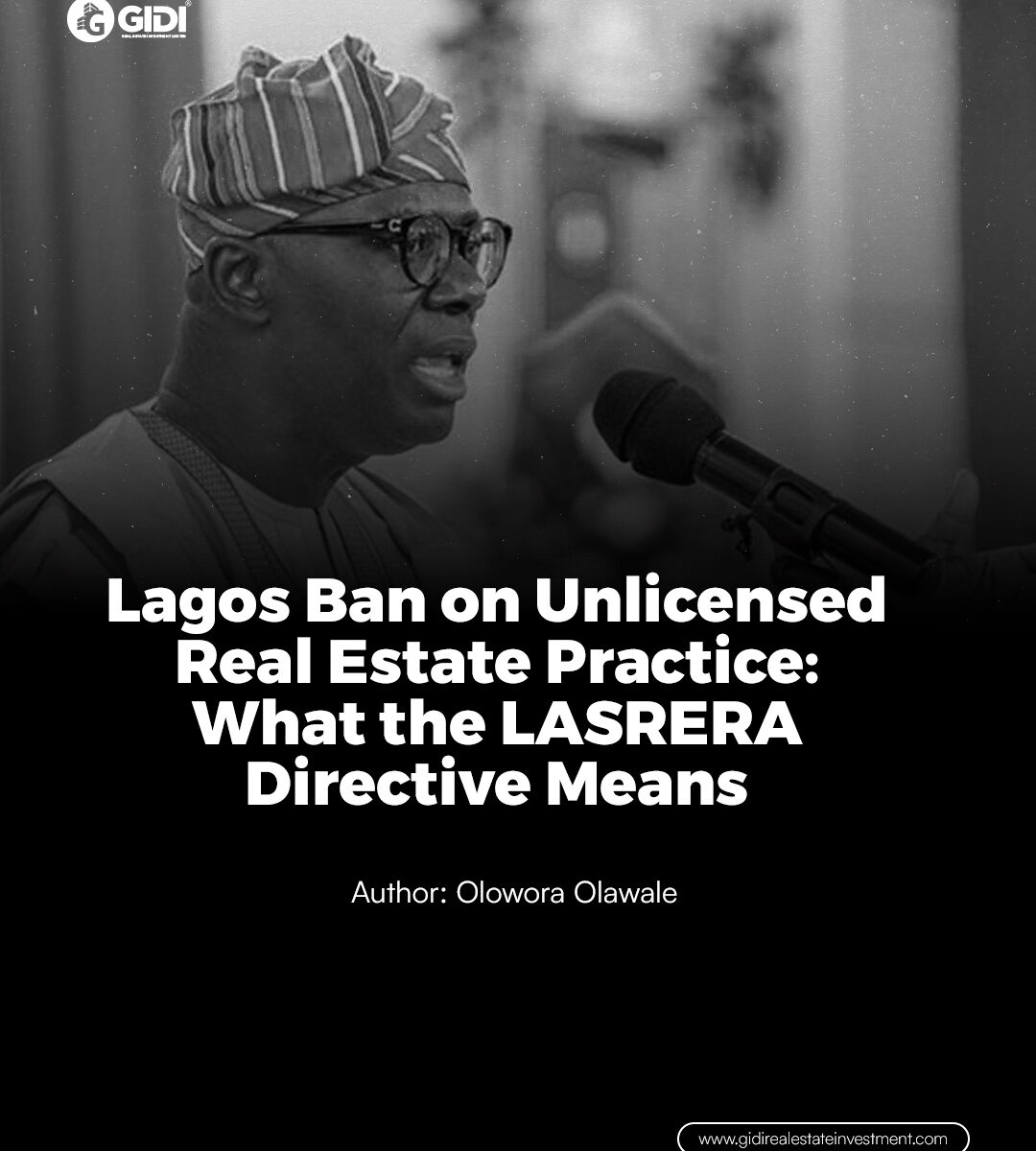
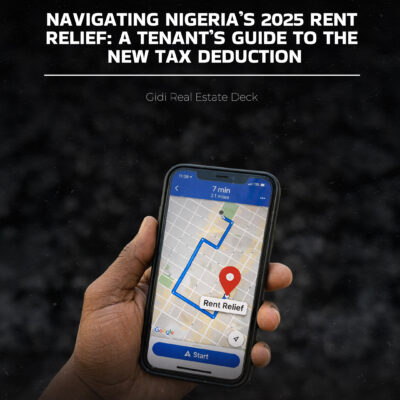
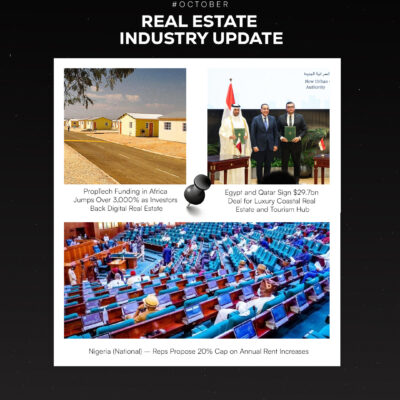
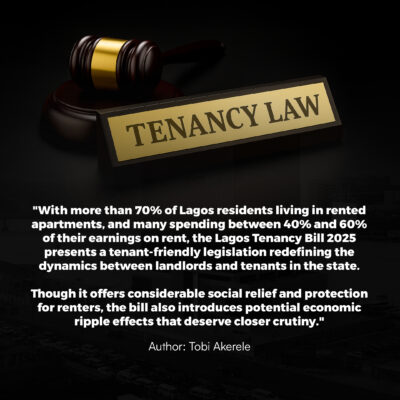

1 Comment